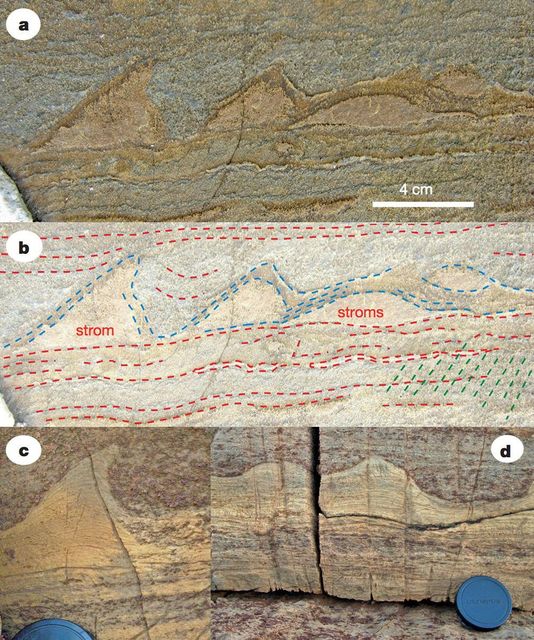Wasantha Rupasinghe
India has taken a series of high-profile steps in recent days aimed at “punishing” Pakistan for the September 18 attack on the Uri military base in Indian-administered Kashmir. The attack, which was carried out by Islamist opponents of Indian rule over Jammu and Kashmir, India’s only Muslim-majority state, killed eighteen Indian soldiers.
The publicly announced steps that India has taken are of a diplomatic and economic character. But there is no doubt that behind the scenes feverish preparations continue for a lethal Indian “counterstrike,” whether in the form of military or covert action.
Within hours of the Uri attack and before any credible investigation, Indian government and military leaders publicly declared Islamabad responsible. Soon the media was full of commentary baying for military action against Islamabad and enthused reports that Prime Minister Narendra Modi was huddling with India’s senior-most military and intelligence officials to plot a robust response. The measures under consideration reportedly included air or cruise missile strikes on Islamist Kashmiri separatist bases in Pakistan-administered Kashmir, cross-border raids, and/or the assassination of Pakistani intelligence officials.
The Indian government and military have subsequently signaled that they still intend to bloody Pakistan. However, given the logistical difficulties in carrying out an attack and in rebuffing the inevitable Pakistani military response, they have said that they do not intend to act precipitously. Any action will be at a time and in a form, including potentially “deniable” covert operations, of India’s choosing.
In the meantime, India is mounting a diplomatic and political offensive against Pakistan, and Modi and his government continue to incite the population against Pakistan. In this they have the full support of the opposition Congress Party, which has called for an emergency session of parliament to discuss reprisals against Pakistan.
Yesterday, the Indian government announced that Modi will boycott the SAARC (South Asian Association of Regional Cooperation) summit in Islamabad in November and indicated that it has convinced other member states—Indian news reports named Bangladesh, Bhutan and Afghanistan—to do the same.
On Monday, India said it would increase its water withdrawals from three rivers that flow through India to Pakistan to the maximum permitted under the 1960 Indus Water Treaty (IWT) and cease its participation in meetings of the Permanent Indus Commission, set up under the IWT, until “terror comes to an end.” India and Pakistan already are at loggerheads over the IWT’s application and implementation. By maximizing its water rights and under conditions where Pakistan has repeatedly been hit by drought and electricity shortages, New Delhi hopes to deliver a major blow to the Pakistani economy.
Modi has convened a meeting for later this week to discuss stripping Pakistan of Most Favored Nation Trade status. Given the paltry level of bilateral trade between South Asia’s rival nuclear-armed states, this will have only limited adverse impact on Pakistan, but India is intent on moving on as many fronts as it can.
Modi and his Foreign Minister, Sushma Swaraj, have given back-to-back inflammatory speeches targeting Pakistan and labeling it a “terror state” or “state sponsor of terrorism”—designations Washington has repeatedly invoked to justify illegal wars and missile strikes.
Speaking last Saturday before the national council of his party, the Hindu supremacist Bharatiya Janata Party or BJP, Modi for the first time explicitly labeled Pakistan as the author of the Uri attack. “Pakistan’s rulers,” said Modi, “should know that the sacrifice of our 18 soldiers will not go to waste.”
“Every time there is a terror attack,” continued Modi, “it appears that either the terrorist has come from Pakistan or like [former Al Qaeda leader] Osama Bin Laden has sought asylum there.”
Modi then went on to contrast India and Pakistan, saying the two countries “got independence at almost the same time, (but) have traversed difference paths” such that India today “export(s) software” while “Pakistan export(s) terror.”
In fact, India and Pakistan—the twin capitalist states born of the reactionary 1947 communal Partition of South Asia, into an explicitly Muslim Pakistan and a mainly Hindu India—have followed the same path. Under the rule of the bourgeoisie, both have failed to provide even the most basic necessities of life for large swathes of their populations, have incited communal reaction to split the working class, and have squandered countless lives and resources in pursuit of their geopolitical rivalry.
Modi himself personifies the reactionary and malignant character of the India ruling elite. As Chief Minister of Gujarat, he helped instigate and presided over an anti-Muslim pogrom in 2002 that killed more than a thousand people and rendered tens of thousands homeless.
India’s Prime Minister went on to ridicule the speech Pakistan Prime Minister Nawaz Sharif had given to the UN General Assembly the previous week, saying that it “had been written at the behest of his masters, the terrorists, to serenade Kashmir.”
To be sure, Sharif’s posturing as the defender of the Kashmiri people was an utter fraud. The Pakistani bourgeoisie has denied the Kashmiris under its rule in Azad or Pakistan Occupied Kashmir their basic rights and it has manipulated and systematically sought to communalize the opposition of the people in Indian-held Kashmir, while using it to legitimize its reactionary conflict with India.
That said, Modi clearly had no rebuttal to Sharif’s charges of massive Indian state violence and repression in Kashmir. Instead he denounced—and as is in Sharif’s case not without justification—Pakistan for committing similar crimes against its own people.
In mid-August, well before the Uri events, the Modi government announced that India would hit back against Pakistan by denouncing Pakistani human rights violation in Balochistan and by giving more “political space” to anti-Pakistani Balochi ethno-separatists in India. In his BJP National Council speech, Modi again brandished the Balochistan card. And so as to underscore the implicit threat India will support Balochistan’s secession, he noted, as part of a mock dialogue with Islamabad, “Once Bangladesh was part of your country. You couldn’t handle it.”
On Monday, Swaraj used her speech at the UN General Assembly to castigate Pakistan as a terrorist state and call for its diplomatic isolation. Although she did not directly name Pakistan, her meaning was unmistakable. “There are nations,” she said, that still speak that language of terrorism, that nurture, peddle it and export it.” Invoking the US’s phony “war on terror,” she said that such countries “should have no place in the comity of nations.”
The Indian elite’s hue and cry against Pakistan over Islamabad’s ties to Islamist terror is utterly hypocritical and reactionary and not only because New Delhi has its own sordid record of covert operations and is using the reputed Islamist terror menace to legitimize its own belligerent policy.
Pakistan intelligence developed close ties to Islamist groups in Afghanistan in the 1980s, when it served as the pivot of the CIA campaign to overthrow the Soviet-backed government in Kabul, and subsequently incorporated some of them into its machinations against India. But the US, with which the Modi government has a burgeoning military-strategic partnership, has over the past quarter-century waged and fomented one illegal war after another. And in so doing, it has made far greater use than the Pakistani elite of Islamist terror groups to advance its predatory strategic interests. From Kosovo in the late 1990s, to Libya in 2011, and Syria for the past five years, Washington has repeatedly enlisted Islamist terrorist groups as its proxy fighters, in the process blowing up whole societies.
Washington has called on India and Pakistan to pull back from further escalation. A senior US State Department official told the Press Trust of India, “Our longstanding position is that we believe India and Pakistan stand to benefit from normalization of relations and practical cooperation.” He added that Washington will “encourage India and Pakistan to continue to engage in direct dialogue aimed at reducing tensions.”
Such statements are entirely hypocritical and self-serving. As in the South China Sea, the Middle East and Eastern Europe, US imperialism is playing the most incendiary role in South Asia. Its drive to make India a frontline state in its military-strategic offensive against China, has overturned the regional balance of power, stoking an arms and nuclear-arms race, increasing the anxiety and strategic crisis of Pakistan’s venal bourgeois elite, and encouraging India in its ambitions to impose itself as the regional hegemon.
 MSP course list November 2016
MSP course list November 2016
